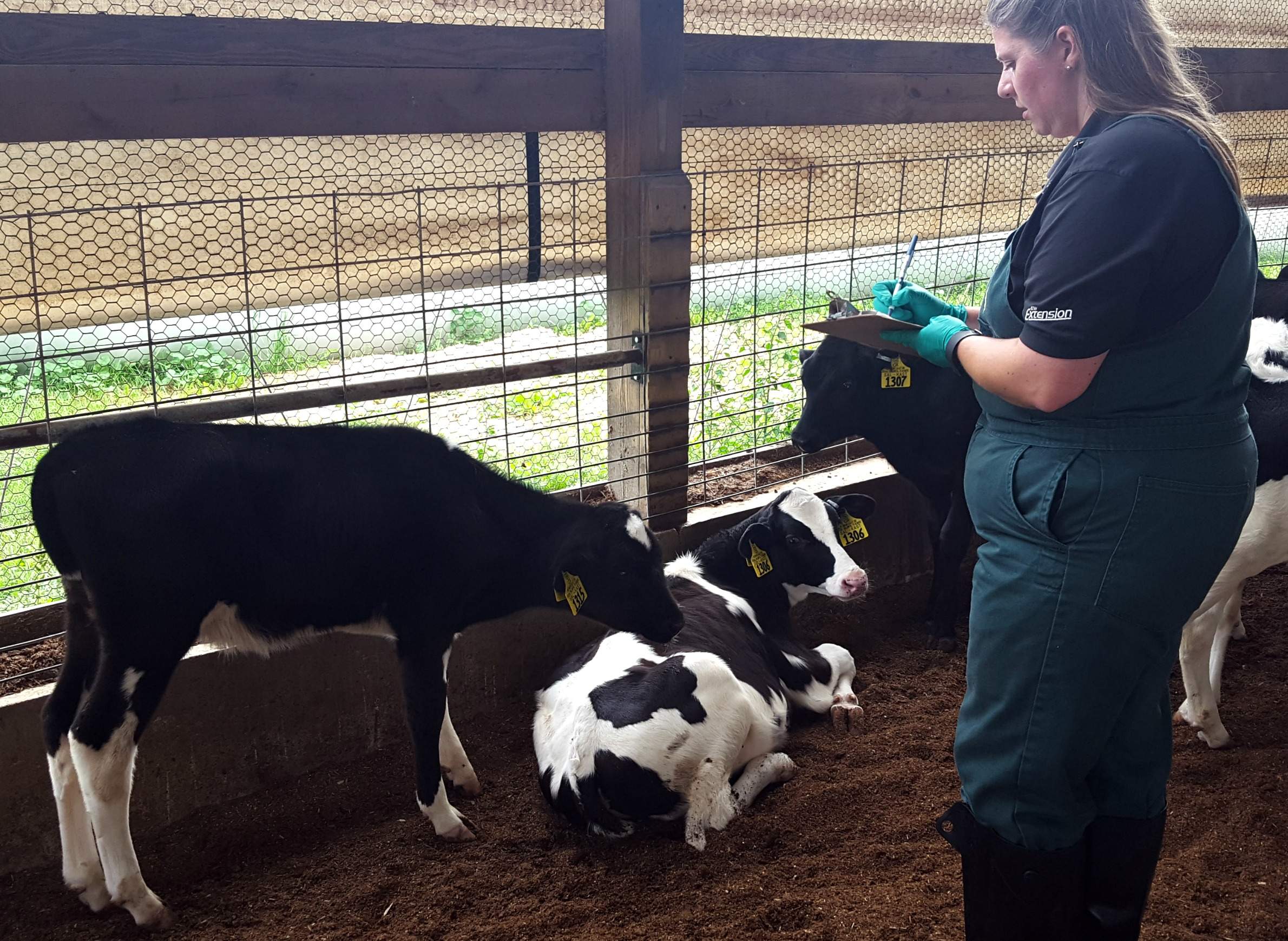
Under new FDA requirements, veterinarians must examine and diagnose an animal's condition, and determine whether the use of feed additive medication is necessary.

Under new FDA requirements, veterinarians must examine and diagnose an animal's condition, and determine whether the use of feed additive medication is necessary.
To limit the development of emerging human and animal resistance to antibiotics, farmers who give livestock and poultry antimicrobial-medicated feed will have to purchase it under supervision of a veterinarian starting in 2017.
This fundamental change in policy regulating how farmers take care of their livestock and poultry is taking place because of growing concern over human and animal resistance to antibiotics. The greater the use of antibiotics, the greater the likelihood bacteria may become resistant to the medicine. Animals given feed containing antimicrobials can pass along those resistant bacteria to humans who eat their meat. In turn, those bacteria can cause infections in humans.
The U.S. Food and Drug Administration has been working on changing its regulations on antibiotic use in farm animal feed for more than 20 years. Indeed, FDA data show that more kilograms of antibiotics are sold in the United States for food-producing animals than for people. As concern increases about the overall ability to fight infectious diseases and with policy changes on the horizon, U.S. restaurant chains have been buying less poultry raised with antibiotics. In Wisconsin, regulators and researchers are monitoring and studying antibiotic resistance.
The federal policy change means meat and poultry producers can only give their livestock antibiotics for therapeutic purposes to maintain the health of the animal. They can no longer give low doses of antibiotics to healthy food animals to enhance their growth and the efficiency with how they process their feed, or to compensate for substandard animal husbandry and management practices. This nontherapeutic use of antibiotics in food animal production is linked to antibiotics losing their effectiveness to fight infections in humans.
To purchase feed containing medically important antibiotics after January 1, 2017, a farmer will need to obtain a feed directive from the licensed veterinarian with whom the producer has established an ongoing professional relationship, which the FDA calls a "valid veterinarian-client-patient relationship." Wisconsin state law defines the veterinarian-client-patient relationship; states without their own definitions must conform to the minimum federal standard.
Both the farmer and veterinarian are responsible in the fulfilling the legal conditions of the valid veterinarian-client-patient relationship. Among other elements, the veterinarian is responsible for making patient medical decisions, and the farmer is required to comply with follow medical care instructions. Farmers have a vested interest in maintaining this relationship as they derive their livelihood from producing safe, wholesome quality products for consumers.
Under the rule, all medically important antimicrobial feed medications will be used with veterinary supervision. The feed-additive antibiotics that will require a veterinary feed directive are:
In addition, pharmaceutical companies are removing production and performance statements about feed grade antibiotics from their labels.
Only the licensed veterinarian can use or prescribe an FDA-approved drug in a manner that does not conform with the product label. This divergence from the label's requirements can include animal species, condition, dose, frequency of use and how the drug is administered. However, the veterinary feed directive is not a prescription, and veterinarians are no longer allowed to use feed grade antibiotics in a manner not approved other than what is written on the label.
The specified veterinarian must examine and diagnose an animal's condition, and determine whether the use of feed-additive medication is necessary. The veterinarian, the feed distributor and farmer will need to maintain records for two years regarding the purchase of feed containing antimicrobials.
Consumers who are concerned about the usage of antibiotics in livestock may now be able to worry less about the development of antibiotic resistance from this practice. Consumer confidence in meat produced in the United States may increase, but it may come at a cost. Farmers may pass along to consumers the cost of this new FDA ruling on how farmers attain feed grade antibiotics. Most veterinarians will charge for the veterinary feed directive, which increases oversight due to increased time for diagnosis and properly maintaining records, either through traditional manual paper-based or subscription-based computer software systems.
The FDA's Center for Veterinary Medicine provides guidance on the new rules, and questions can be directed to University of Wisconsin-Extension local offices.
Going forward, farmers will need to continue their vigilance about the health of their animals, and plan to work with their veterinarians about logistics and the new process of attaining feed grade antibiotics.
Sarah Mills-Lloyd is a veterinarian and an agriculture agent with University of Wisconsin-Extension Oconto County.